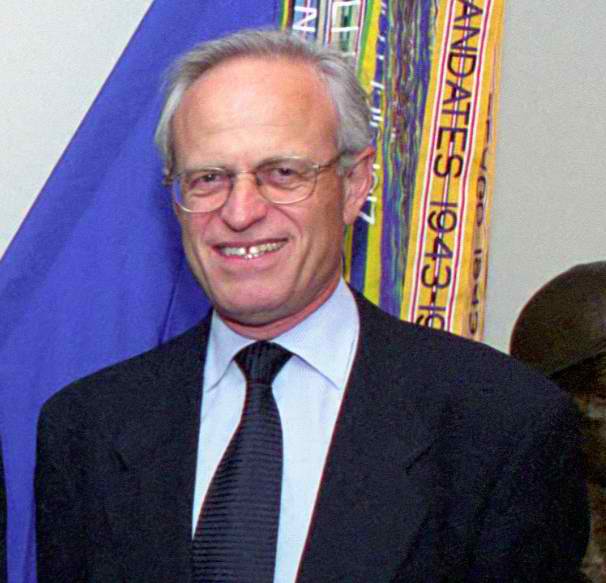
WASHINGTON—U.S. special Mideast envoy Martin Indyk has resigned to return to a Washington think-tank in a move symbolizing the collapse of the latest American effort to forge an Israeli-Palestinian peace deal.
Indyk’s departure Friday, while not unexpected due to the failure of the talks, comes amid turmoil in the region and as relations between Israel and the Palestinians are at a low point with little hope for a resumption in negotiations.
Secretary of State John Kerry said in a statement that Indyk, a former U.S. ambassador to Israel, would return to his position as vice-president and director of foreign policy at The Brookings Institution think-tank in Washington but would continue to serve as special adviser on Mideast peace issues.
“Ambassador Indyk has invested decades of his extraordinary career to the mission of helping Israelis and Palestinians achieve a lasting peace. It’s the cause of Martin’s career, and I’m grateful for the wisdom and insight he’s brought to our collective efforts,” Kerry said.
“The United States remains committed not just to the cause of peace, but to resuming the process when the parties find a path back to serious negotiations,” Kerry said.
Kerry appointed Indyk to the envoy post last July while announcing a resumption in long-stalled peace talks with a nine-month deadline for a settlement. Negotiations broke down before the end-of-April target date with recriminations from both sides.
With the peace process on hiatus, it is unclear whether Indyk will be replaced. His deputy, Frank Lowenstein, will assume the envoy position on an interim basis.
Indyk’s resignation marks the second time Obama has lost a Mideast peace envoy following a failed bid to bring the parties together. Former Sen. George Mitchell stepped down from the post in May 2011 after two years of frustrating efforts to get negotiations going during President Barack Obama’s first term.
Mitchell’s attempt was marked by severe turbulence in U.S.-Israel ties, mainly over Jewish settlements on disputed territory and tensions between Obama and Israeli Prime Minister Benjamin Netanyahu,
The latest effort, in which Kerry and Indyk had invested significant time and energy, collapsed in March when Israel and the Palestinians each backed out of pledges they had made when the peace talks resumed. Each side blamed the other for the breakdown.
The Palestinians accused Israel of reneging on a promised prisoner release and continuing to construct settlements in the West Bank and housing construction in east Jerusalem, which the Palestinians claim as their future capital. Israel accused the Palestinians of seeking greater U.N. recognition in violation of their agreement to negotiate.
The Palestinians then formed a unity government backed by the militant Hamas movement, which Israel refuses to deal with and now blames for the abduction of three Israeli teenagers two weeks ago.
Indyk, 62, had taken a leave of absence from his job as vice-president and foreign policy director of Brookings when he was appointed envoy on July 29, 2013.
At the time, he thanked President Barack Obama and Kerry for “entrusting me with the mission of helping you take this breakthrough and turn it into a full-fledged Israeli-Palestinian peace agreement.”
“It is a daunting and humbling challenge, but one that I cannot desist from,” Indyk said then.
Prior to joining Brookings, Indyk had served as former President Bill Clinton’s ambassador to Israel and was a key part of the 2000 Camp David peace talks. He was also a special assistant to Clinton and senior director for Near East and South Asian affairs at the National Security Council from 1993 to 1995. And he served as assistant secretary of state for Near Eastern affairs in the State Department from 1997 to 2000.